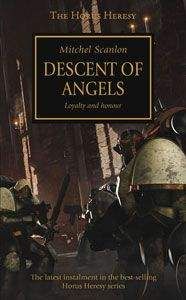Jonathan Howard - Johannes Cabal: The Fear Institute
Dressed, although not a sartorial triumph in any sense, the ghoul lifted Cabal’s bag and discovered it to be far heavier than it remembered. It ran its hand – it could no longer really be called a ‘paw’ – over its head and was gratified to discover hair growing there, so quickly that it could almost feel it doing so, driving out of his scalp like clay extruded from a nozzle. Belatedly, it realised that the sheer speed of the transformation was also the reason for the overwhelming weakness. It was too fast for his body to bear. If it didn’t stop soon, it might kill him.
He dared not abandon his bag, and half carried it, half dragged it for the next mile until at last he saw the house. It looked cold and forbidding in the moonlight, but it was his salvation, and he must reach it if the long plan he had mapped out was to see fruition. It was another quarter of an hour before he finally reached the garden gate and slumped down by it, mortally tired. He tested his face: the muzzle had gone and his skin felt like human skin, just as it had before his transformation, just as it had before he had been forced to trick himself.
Cause and effect were never certain things in the Dreamlands, and what was objective there was subjective here. Time and place shifted in chaotic patterns between the two realms and it had always astonished him that the ghouls, free travellers that they were, had never taken advantage of it. Now he had come within a hair’s breadth of assuming full ghoulhood, he understood very well. The ghouls simply didn’t care, any more than a rat on a warship or a spider in a clock might care about the greater possibilities of its environment. He, however, had realised how this could save him. He wasn’t sure at what point he had realised this or when he had acted upon it. Paradox had stolen the exact sequence of events from his mind and he doubted it would do his sanity much good to try to re-evaluate it, but what was sure was that he had acted upon it, and now the ghoul warrens housed among its many unpleasant material artefacts this one gloriously elegant temporal one. He knew Cabal would settle into the role of ghoul leader easily. After all, he always had.
Cabal sat by the wall of his house and remembered how he had realised the truth of it from the depths of despair when the ghoul leader had stolen the elixir from him for no apparent reason. He had known what he must do, and he had done it with precision: the ‘attack’ on the house in Arkham, making contact with the witch of Hlanith, and being there to hint to himself about the sinew-wood construct in the nameless city. He had known where he would descend into the crevasse in Mormo, and had marshalled his ghouls to harvest several thousand dead heads of hair to ensure he had a soft fall when the rope broke, as it always had and it always would.
He had not enjoyed deceiving himself into making the elixir, but it had been necessary and, after all, he had done the same to himself when he was at that point in the loop-the-loop of events. All these things had happened before and were already happening again, albeit in the subjective past. They were foretold and already lived, and it was to Cabal’s advantage that they remained so. Once he had left the loop, however, Fate arose from her figurative armchair, stubbed out her figurative cigarette, put down her figurative newspaper, and started to take an interest in him again. Now he no longer knew the future, as was borne out by the evidence of him sitting by his garden gate, slowly dying.
In the silver light, tiny faces peered under the gate at him. Bound into the limits of the garden by magic Cabal had used to contain them where he could keep an eye on them, the garden folk watched and speculated.
‘It’s Johannes Cabal! Johannes Cabal!’ they cried, in tinkling high voices like the sound of fairy bells.
‘He smells like a dead dog,’ said one.
‘He looks very ill,’ said another. Then, in a slightly calculating tone, ‘And weak.’
There was some excited muttering. Then they chorused, ‘Come into the garden, Johannes Cabal! We will help you to the door! We will help you in! We are your little friends!’
‘And we won’t eat you. Honest,’ said a voice belonging to one of the less human-savvy Fey. There was angry shushing and the sound of a tiny Fey creature being punched.
Cabal had not needed the hint. The garden folk were capricious at the best of times, but at least they respected and feared his powers. Currently, though, he knew he couldn’t intimidate a skittish kitten. He also knew that unless he got to his laboratory and made a simple counteragent to slow the elixir’s effects to a bearable level, he might not live much longer. He had no choice, but to attempt to bluff the garden folk into believing he was not as ill as he was.
His master plan of deception and obscuration failed at the first step. He couldn’t stand up. ‘Damn,’ he said out loud. ‘Damn, damn, damn.’ It had been such a good plan too. He had fooled himself, after all. How difficult could it be to fool a bunch of criminally insane pixies? ‘Damn,’ he said once more, and lapsed into unconsciousness.
He sat propped against the low garden wall, quietly dying. As he faded, he dreamed of how he had raised her from the dead, and how he had felt to see her live and breathe again. How he had not cared about the years, but only about the result and the truth that there were some people in this benighted world who were worthy of sacrificing oneself for. This was the second thing that he had denied Nyarlothotep, Crawling Chaos and bastard, and he might have laughed in his sleep as he dreamed of it.
Slowly he slumped over, and sank too deeply towards death to dream any more.
For five more minutes he faded.
A figure detached itself from the shadows beside the house and walked to him. Cabal was unaware as his eyelid was drawn back and the pulse at his throat checked. He didn’t feel it when he was unceremoniously picked up and slung easily over the figure’s shoulder, his bag gathered. The garden gate was opened and he was carried down the path to the front door of his house. The garden folk scattered in panic. They knew danger when they saw it, and the figure reeked of threat.
The front door was locked. Cabal doubtless had the key about his person or in his bag, but the figure had neither the time nor the inclination to search. Instead it put down Cabal’s Gladstone, punched the door with its now free hand, smashing the bolt through the frame, picked up the bag again and carried it, with Cabal, into the hallway, past the door that still shuddered from the impact. The figure, a tall man in a long coat, didn’t bother to secure the door. The house was warded against intrusions by the garden folk but, even if it hadn’t been, none of them would have dared to enter while he was there.
Stirred from deep sleep, Cabal was muttering in delirium, and the man listened intently without even having to put his ear to Cabal’s feverishly quivering lips. Cabal was running through the last things he had been thinking about before passing out. The scheme to get into the house was now moot, but the cause and cure for his quickly evaporating life was not. The man listened gravely to the burbled imperatives. Time was short, it was true, but he proved remarkably rapid. He opened Cabal’s bag, was only momentarily surprised to find a flaming skull in there, removed the notebook that Cabal had fastidiously kept even during his descent into ghoulhood and flicked through it quickly. At least the relevant sections weren’t encrypted – Cabal’s failing intellect had preventing him doing that. The man read quickly, stopping once to look at Cabal with disgust. He went to the bookshelves and took down a slim volume entitled A Treatise on the Induced Retrocessation of the Physiological Transformation in cases of Lycanthropy, Including Notes on the Metamorphic Processes Catalysed by Ghoulish Anthropophagy by Erast Culpin. Then, in long strides, he was out of the room and up the stairs to the attic laboratory.
Cabal did not die that night, the next, or the next, but neither did he awaken fully. He was nursed through the illness by the man, fed slowly and patiently like a baby, washed and looked after. Sometimes, during the day, Cabal would almost manage to awaken, and would look around his room before lapsing back into sleep, but the man was never there.
The man looked after the house, too, repairing the front door, cleaning the rooms, and laying in provisions. One evening, he opened Cabal’s Gladstone bag and removed the skull of Ercusides. ‘Who’s there?’ Ercusides demanded. ‘There is something going on, isn’t there? Isn’t there? Is there?’
The man did not answer, but instead carefully placed the skull with its cool blue-green flames in a varnished wooden box that had once contained a reflecting mirror galvanometer until Johannes Cabal had inadvertently destroyed it in an unhelpful if exciting experiment. The empty box had been left in a corner of the attic laboratory for years, which was where the man had discovered it. Ercusides’ skull fitted neatly, and the heatless flames did not start a fire in the wood shavings the man had provided as packing. The lid was closed and clipped shut, and the box placed on the high shelf by the fireplace in the front room, beside another wooden box of similar dimensions.
Ercusides wasn’t sure what was being done with him, but he was reasonably sure it was outrageous. ‘What is this? Is that you, Cabal? Speak to me, you vile man!’
The stranger who had placed him there was already gone, but the other box, Ercusides’ new neighbour, answered in a fashion. It whistled, a slow, haunting, melancholy air that spoke of optimism through adversity. Ercusides’ shouts grew quieter, and died away altogether as he found himself listening. Finally he said, ‘You . . . whoever you are. That tune, what is it?’
The other box replied, its voice rich and mature. ‘“Blimey, I’m a Limey”,’ it said.
‘What’s a limey?’ asked Ercusides. ‘Who’s “Blimey”?’
‘That doesn’t matter,’ said the box, and began whistling again.
Soon, when he had heard the tune all the way through, Ercusides joined in.
Four days after he had collapsed at his own front gate, Johannes Cabal finally awoke fully. It was late evening, almost eleven, according to the clock on the mantel, and for a moment he felt content. Then he realised he had no idea how he had got there, and his contentment quickly turned to concern. He was wearing pyjamas, which he never wore because he had long since fallen out of the habit of wearing pyjamas to bed, the closest thing he had to a decadent characteristic. They had been sitting in a drawer in his dresser for years. Why was he wearing them all of a sudden? Why was there a carafe of fresh water by his bed? There had been next to no coal when he had left on the Fear Institute expedition, and he had not bothered to order any, so why was there a full scuttle by a healthy fire in the grate? With some difficulty he sat up, and – some ghoul instinct still in place – sniffed the air. There was an ineffable sense of intrusion in the air. Somebody else was in his house. In his house. He looked at the desk and wondered if the interloper had searched it. If not, then the Italian revolver he had in the upper-right-hand drawer should still be there.
The door opened and he had no chance either to reach the desk or pretend he was still asleep.
The anger on his face at the intrusion into his home melted like wax beneath a blowtorch. Entirely forgetting himself, he gawped, and continued to gawp as the man sat on the edge of his bed, and looked at him without saying a word.
It was Johannes Cabal who spoke first, when his wits began to return having been temporarily expelled by mountainous astonishment.
‘You,’ he said at last, his voice thin and weak from illness and disuse. ‘It’s you.
‘But . . . you’re dead . . .’
Author’s Note
It would be remiss of me if I were not to emphasise that the titular society does not exist, and one would be ill-advised to search for it, not least for reasons that must be apparent from the text. There is, however, a real Fear Institute. The organisation in this novel was briefly called the Phobos Society, until I gave in to the temptation that descended upon me every time I walked along the high street in Keynsham, Somerset, England, the town in which this book was written. There stands the J. N. Fear Institute, a building bequeathed to the people of Keynsham by John Nelson Fear in 1917. I feel obliged to underline that while the Institute is home to bridge and chess clubs, that one may learn to dance within its Fear Hall (I ask again – how could I resist?), and that it holds frequent country markets, it has never at any time instigated, funded or pursued the goal of eliminating irrational fear from the world by natural or supernatural means, least of all through the offices of a sarcastic necromancer. Or, if it has, it hasn’t mentioned anything about it on its noticeboard.
With respect to the map, H. P. Lovecraft did not, as far as I know, create a map himself. From clues given in his stories, however, assorted examples have been drawn up over the years. I used a combination of elements from maps by Carolyn Schultz and Jack Gaughan as a starting place (although my lovely crinkly bits around the coastlines are somewhat different), but then naughtily shifted the entire Eastern Continent a bit further north to give me space to pop in the island of Oriab where I thought it looked nicer. I then – does my hubris know no bounds? – shoved the Lake of Yath into a different position and moved the ruins of the unnamed city to stand by its northern shore. Why did I do these wilful things?
Well, because that’s the way I dreamt it.
Acknowledgements
It is usual to thank those who have helped out in the creation of a book, but in this particular case, it is a larger community than the norm. Ever since H.P. Lovecraft created the Dreamlands it has been a playground for generations of writers and artists, and to all of them – especially those whose additions I have made use of in this novel and likely altered horribly – I offer my appreciation and thanks.
As always, there is a great unsung army behind the business and production side of every book. Mentioned in dispatches are my agent Sam Copeland, my editor Claire Baldwin, and the thoroughly perspicacious Hazel Orme, who copy edited The Fear Institute.
Thanks once again to Linda ‘Snugbat’ Smith for her splendid chapter head art. There never seems enough time between the finalised chapter list and art deadline to get them done, yet she always manages it.
I’d also just like to say a few words about George H. Scithers, who died last year (2010). I never met him in person, but we corresponded after he bought the very first Johannes Cabal short story – ‘Johannes Cabal and the Blustery Day’ – for publication. He was a clever man, experienced in the ways of the world of science fiction and fantasy (he had four Hugos to his name), and wise too. He offered me good advice and strong encouragement, and I was grateful to have him in my corner. He’s missed.




